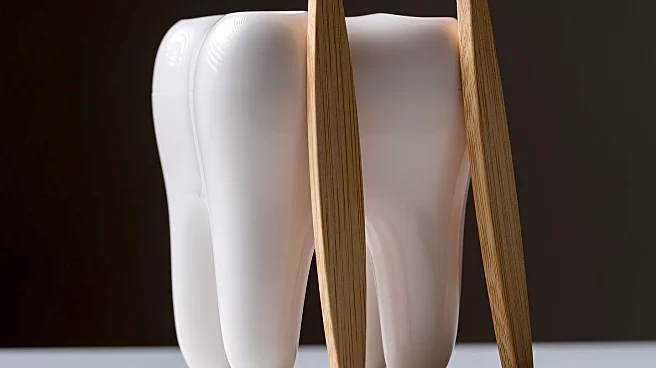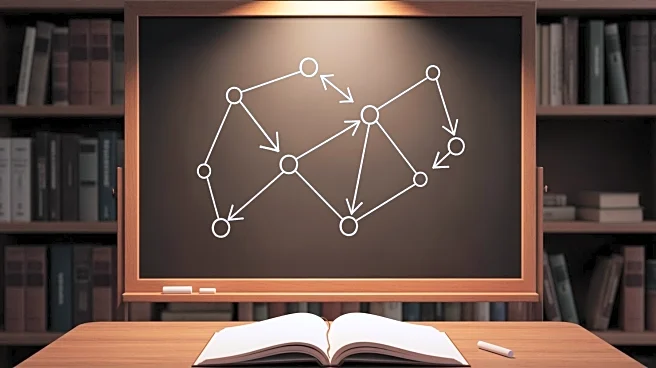What's Happening?
Dental experts are weighing in on whether it is better to brush teeth before or after breakfast. The debate centers around the impact of brushing on dental health, with considerations for plaque removal and enamel protection. According to Steven Katz, president of the American Association of Endodontists, brushing before breakfast can remove overnight plaque and bacteria, enhancing the taste of breakfast and providing fluoride protection. Margherita Fontana from the University of Michigan School of Dentistry suggests brushing after meals to remove food particles trapped in teeth grooves. Experts recommend brushing twice daily and flossing, ideally after the last meal of the day. The timing of brushing after consuming acidic foods is also discussed, with a recommendation to wait 30 to 60 minutes to prevent enamel erosion.
Why It's Important?
The timing of brushing teeth can significantly impact dental health, influencing the prevention of cavities and gum disease. Brushing before breakfast can protect teeth from acid erosion during meals, while brushing after can ensure food particles are removed, reducing the risk of decay. This advice is particularly relevant for individuals prone to cavities, as proper dental hygiene can prevent long-term dental issues. The discussion highlights the importance of maintaining a consistent brushing routine, which is crucial for overall oral health. Understanding the science behind brushing can help individuals make informed decisions about their dental care practices.
What's Next?
Dental professionals may continue to study the effects of brushing timing on oral health, potentially leading to more refined guidelines. Public health campaigns could emphasize the importance of brushing both before and after meals, especially for those at higher risk of dental issues. As research evolves, dental care recommendations may adapt to incorporate new findings, influencing how individuals approach their daily oral hygiene routines.
Beyond the Headlines
The discussion on brushing timing also touches on broader themes of preventive health care and personal responsibility in maintaining health. It underscores the role of education in empowering individuals to make informed health decisions. Additionally, the conversation may lead to increased awareness of the importance of dental health in overall well-being, potentially influencing public health policies and educational programs.










